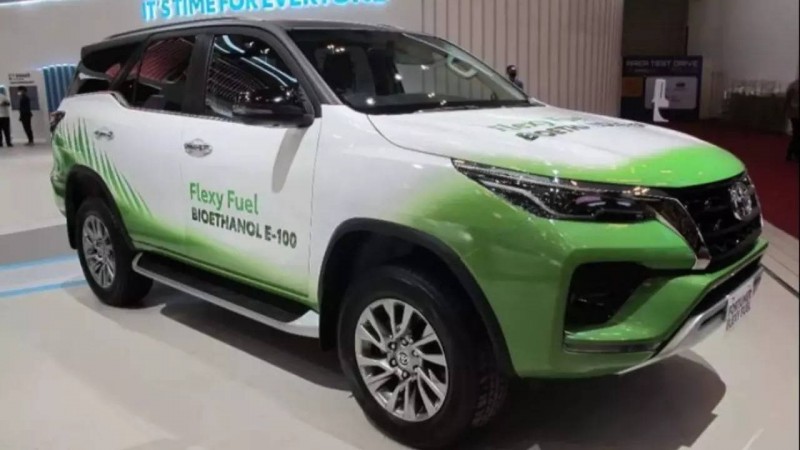
In recent times, the automotive industry has been witnessing a significant shift towards sustainable and eco-friendly technologies. Toyota, a pioneer in this field, has introduced a new variant of its popular SUV, the Fortuner, equipped with a flex-fuel engine. This development has sparked curiosity and discussions, especially among Indian automotive enthusiasts. In this article, we'll delve into the details of the Toyota Fortuner with a flex-fuel engine, exploring its features, benefits, and the possibility of its introduction in the Indian market.
The automotive landscape has seen a transition from conventional internal combustion engines to more sustainable options. Flex-fuel engines have emerged as a viable alternative, offering the flexibility to run on a blend of gasoline and ethanol. This not only reduces greenhouse gas emissions but also contributes to the utilization of renewable resources.
Toyota's Fortuner has always been a symbol of power and reliability. With the introduction of a flex-fuel engine, the brand takes a step forward in aligning with the growing demand for eco-conscious vehicles. This new variant retains the Fortuner's rugged appeal while incorporating a hybrid powertrain that optimizes fuel efficiency without compromising on performance.
The integration of a flex-fuel engine brings several advantages to the table. The ability to run on a combination of gasoline and ethanol reduces the vehicle's carbon footprint. Moreover, flex-fuel engines can promote the use of domestically produced ethanol, thereby enhancing energy security. This technology also showcases Toyota's commitment to a greener future.
India, a rapidly growing automobile market, presents immense potential for vehicles equipped with alternative fuel technologies. The demand for SUVs, such as the Fortuner, remains strong in the country. As consumers become more environmentally conscious, Toyota's flex-fuel variant could find a receptive audience.
While the idea of introducing the Fortuner with a flex-fuel engine in India is exciting, there are challenges to consider. The availability of ethanol fueling stations and the infrastructure required for flex-fuel vehicles might pose initial hurdles. However, with concerted efforts from both the government and private sector, these obstacles can be overcome.
Toyota's commitment to sustainable mobility is evident through its global initiatives. The flex-fuel Fortuner could serve as a precursor to more eco-friendly offerings in the Indian market. As the nation takes strides towards reducing its carbon footprint, this vehicle could be a key player in the transformation of the automotive sector. The debut of the Toyota Fortuner with a flex-fuel engine marks a significant milestone in the evolution of sustainable mobility. This innovative approach combines power, performance, and environmental responsibility. While its introduction to India comes with challenges, the growing demand for greener transportation solutions suggests a positive outlook. As Toyota continues to push the boundaries of automotive engineering, the flex-fuel Fortuner could be a driving force in shaping India's automotive future.
Mahindra Scorpio-N Pickup: A Game-Changer for South Africa's Truck Market
Learn the true severity of myasthenia gravis
Next-Generation 2024 Toyota Fortuner: A Glimpse into the Future